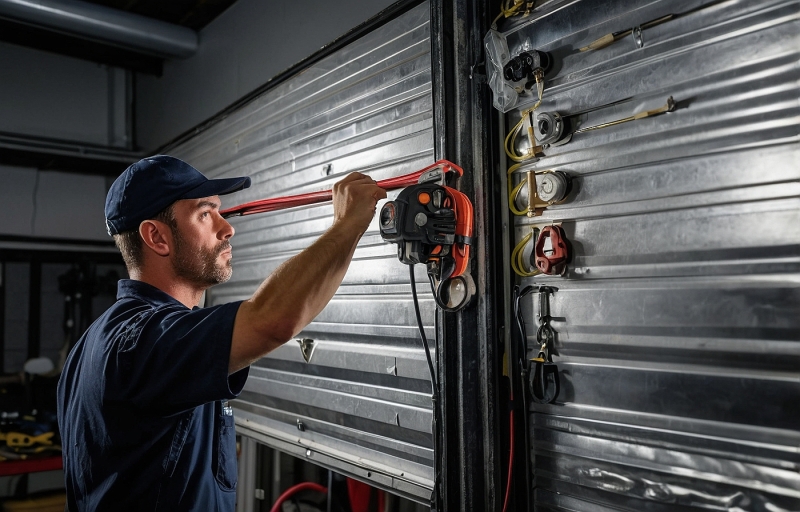
How to Prevent Garage Door Cable Failures
Your garage door might open and close hundreds of times each year — and behind every smooth movement is a pair of steel cables doing the heavy lifting. But when one fails, your entire system can become dangerous, unreliable, or completely stuck.
In this guide, you'll learn what causes garage door cables to fail, how to spot early signs of trouble, and what you can do to avoid costly repairs and accidents.
🎯 What Are Garage Door Cables and Why Do They Matter?
Garage doors are heavy — some weigh more than 300 pounds. The cables, working alongside the springs, carry and control that weight. They help the door move evenly, stay on track, and stop safely.
When a cable wears out or snaps, your garage door may:
- Hang to one side
- Refuse to open
- Come crashing down unexpectedly
And since cables are under extreme tension, trying to fix them without training is extremely dangerous.
🔍 What Causes Garage Door Cable Problems?
There are a few main reasons cables break down:
1. Rust and Moisture
Steel doesn't like water. When cables are exposed to damp environments or coastal air, rust forms, weakening the internal strands.
2. Mechanical Wear
Cables can rub against hardware, pulleys, or the door frame. Over time, this friction leads to fraying and uneven stress.
3. Poor Maintenance
When rollers or springs aren't maintained, cables work harder than they should — especially in unbalanced systems.
4. Age and Repetition
Even well-maintained cables don't last forever. After years of lifting and lowering the door, metal fatigue sets in.
⚠️ Warning Signs to Catch Early
Don't wait for a snap. Look for these red flags:
- Cable is visibly frayed or twisted
- Door lifts crooked or looks tilted
- Cable is slack or has jumped off the drum
- Loud scraping or popping sounds when the door moves
If anything seems off, stop using the door and call a professional.
✅ How to Prevent Garage Door Cable Failures
1. Check Cables Monthly
Take a quick look at each cable. Watch for rust, wear, or loose tension.
2. Reduce Humidity
Install weather seals and keep water away from the garage interior to slow down rust and corrosion.
3. Keep Moving Parts Lubricated
Use silicone spray on hinges, tracks, and pulleys. Never grease the cables directly — it can attract dust.
4. Test Door Balance
Disconnect the opener and manually lift the door halfway. If it falls or shoots up, the balance is off — which stresses cables.
5. Book Annual Maintenance
Have a technician inspect the springs, drums, and cable system at least once a year. It's cheaper than an emergency repair.
🛑 When to Replace the Cables
You likely need new cables if:
- There's visible fraying or rust
- One side lifts faster than the other
- The system is over 7–10 years old
- The door jerks, shakes, or hangs unevenly
- A cable has snapped or detached
Warning: Never attempt cable replacement yourself. The tension can cause serious injuries without proper tools and training.
🛠 Fast Cable Repairs in New Jersey
At Kraus Garage Door, we fix cable issues fast — before they become emergencies. Our team offers:
- Same-day service
- 24/7 emergency repair
- Cable, spring, and roller replacements
- Safety checks and system tuning
- Fully licensed, New Jersey-based technicians
📌 Final Thoughts
Garage door cables are easy to forget — until they fail. But with basic checks and professional care, you can avoid sudden breakdowns and keep your system working like new.
Noticed a cable problem?
📞 Call Kraus Garage Door now for fast, affordable service anywhere in NJ.
Leave a Reply